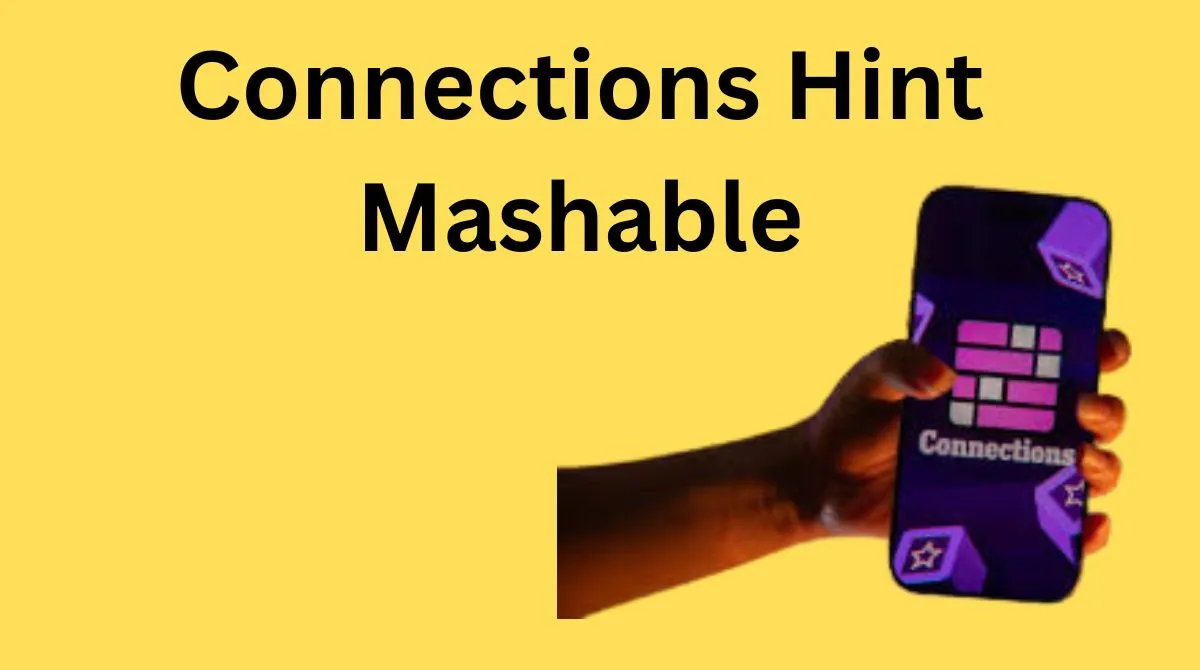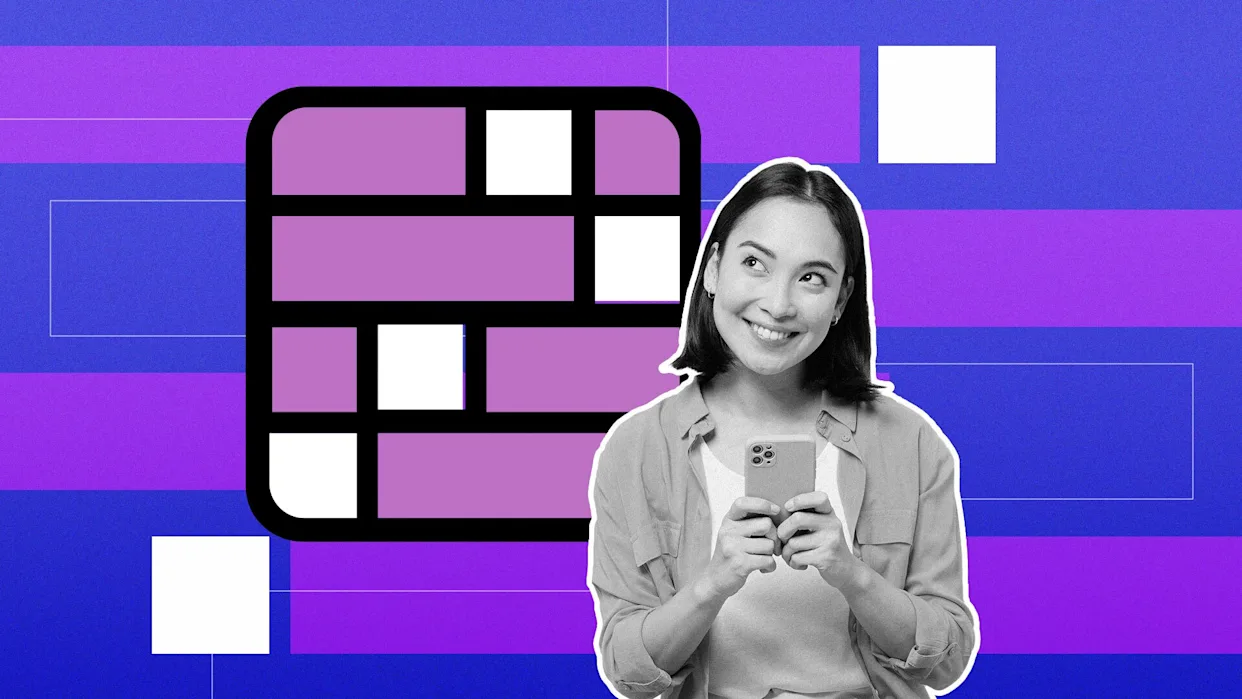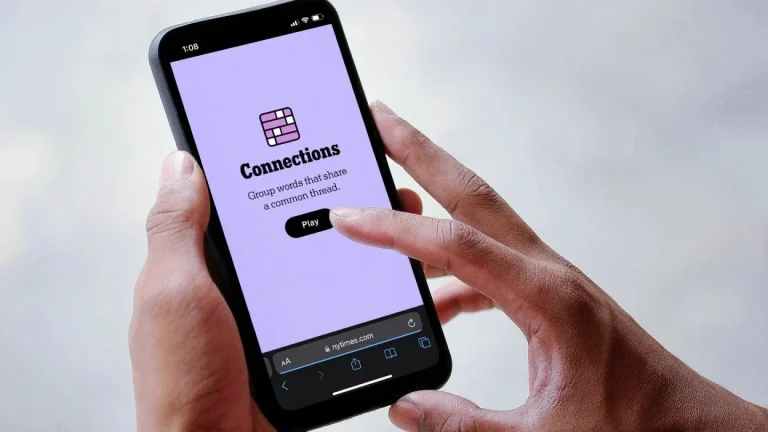Mashable Connections hints today provide crucial assistance for players tackling the popular word association game that has taken the puzzle world by storm. This daily brain teaser challenges players to group 16 words into 4 secret categories based on clever connections, requiring both broad knowledge and creative thinking.
Whether you’re looking for Mashable Connections hints today answers or general puzzle-solving strategies, this guide will help you master the game’s challenges.
Understanding the Connections Game Format
The Connections puzzle presents players with a 4×4 grid of 16 seemingly unrelated words that must be grouped into 4 categories of 4 words each. Each category has a specific theme connecting all its words.

Key game mechanics:
-
16 words displayed in a grid format
-
4 hidden categories to discover
-
4 words belong to each category
-
4 mistakes allowed before the game ends
-
Color-coded difficulty (yellow to purple)
Daily puzzle characteristics:
-
New puzzle released every 24 hours
-
Categories range from obvious to obscure
-
Connections can be based on:
-
Word meanings
-
Common phrases
-
Pop culture references
-
Word structure/linguistics
-
Shared prefixes/suffixes
-
Scoring system:
-
Perfect solve: 4/4 categories correct
-
Partial solve: 1-3 categories correct
-
Failed solve: 4 incorrect attempts
Today Mashable Connections Hints (Without Spoilers)
For players seeking Mashable Connections hints today without direct answers, here are subtle clues for the current puzzle:
General hint categories:
-
Music-related terms
-
Common abbreviations
-
Household items
-
Sports terminology
Specific word pointers:
-
Look for words that can precede a common noun
-
Notice words that sound like letters
-
Identify terms used in multiple contexts
-
Spot words that rhyme with numbers
Strategic suggestions:
-
Start by isolating the most distinctive words
-
Watch for potential word pairs
-
Consider both literal and figurative meanings
-
Don’t overlook homonyms and homophones
Step-by-Step Solving Strategy
Follow this proven method to approach each Connections puzzle systematically:
Phase 1: Initial Scan
-
Read all 16 words aloud
-
Note any immediate obvious connections
-
Identify outlier words that stand out
Phase 2: Group Formation
-
Start grouping words that clearly belong together
-
Create multiple potential categories
-
Use process of elimination for remaining words
Phase 3: Verification
-
Test each group by articulating the connection
-
Ensure no word fits better in another category
-
Check for overlapping possibilities
Phase 4: Final Submission
-
Submit your most confident category first
-
Proceed from easiest to hardest groups
-
Use mistakes strategically to eliminate possibilities
Common Category Types to Recognize

Being familiar with frequent category themes can dramatically improve solving speed:
Popular category patterns:
-
Prefix/Suffix combinations
-
Words that all start/end the same
-
Example: “____berry” (Straw, Blue, Rasp, Boysen)
-
-
Compound words/phrases
-
Words that pair with a common partner
-
Example: “Snow____” (Ball, Man, Mobile, Plow)
-
-
Homophones/Homonyms
-
Words that sound like other words
-
Example: “Eye,” “I,” “Aye,” “Aye”
-
-
Pop culture references
-
Movie titles, song lyrics, celebrity names
-
Example: Beatles songs: “Help,” “Yesterday,” “Hey Jude,” “Let It Be”
-
-
Wordplay categories
-
Palindromes, anagrams, hidden words
-
Example: “Evil,” “Live,” “Vile,” “Levi”
-
Advanced Solving Techniques
For experienced players looking to up their game:
Lateral thinking approaches:
-
Consider foreign language meanings
-
Think about symbolic representations
-
Explore historical contexts
-
Examine visual characteristics of words
Elimination tactics:
-
Identify decoy words meant to mislead
-
Spot multiple-meaning words that could fit different categories
-
Recognize category difficulty levels based on color coding
Memory aids:
-
Create mental category buckets
-
Use word association techniques
-
Employ mnemonic devices for tricky connections
Daily Puzzle Archive Patterns
Analyzing past puzzles reveals these frequency patterns:
Most common category types:
-
Food/Beverages (appears 68% of days)
-
Sports Terms (52% frequency)
-
Music References (47% occurrence)
-
Common Phrases (43% appearance)
Least common category types:
-
Advanced Science Terms (6% frequency)
-
Obscure History (8% occurrence)
-
Regional Dialects (11% appearance)
-
Technical Jargon (13% of puzzles)
Handling Challenging Puzzles
When facing particularly difficult grids:
Red flag indicators:
-
Multiple plausible connections for words
-
Highly specialized knowledge required
-
Intentional misleading word choices
-
Abstract conceptual connections
Solution approaches:
-
Work backwards from least connected words
-
Look for secondary meanings
-
Consider phonetic similarities
-
Identify category hierarchies
Damage control:
-
Use mistakes strategically
-
Eliminate impossible connections
-
Reassess remaining groupings
-
Don’t rush final submissions
Time Management Strategies
Optimize your solving efficiency:
Speed-solving tips:
-
Set a 3-minute initial scan period
-
Allocate 2 minutes per category
-
Reserve final minute for verification
-
Use quick elimination techniques
When to walk away:
-
After 15 minutes of no progress
-
When frustration impairs thinking
-
If multiple guesses fail
-
Before making careless mistakes
Tracking Your Progress

Improve through consistent practice:
Performance metrics:
-
Record daily solve times
-
Note category difficulty levels
-
Track mistake patterns
-
Monitor improvement trends
Skill development:
-
Focus on weak category types
-
Review missed connections
-
Study word relationship patterns
-
Expand general knowledge bases
Community Solving Etiquette
When discussing puzzles with others:
Spoiler guidelines:
-
Always warn before revealing answers
-
Use vague hints first
-
Respect individual solving processes
-
Avoid public answer posting
Collaborative solving:
-
Share general strategies
-
Discuss category types
-
Exchange lateral thinking techniques
-
Compare solving approaches
Mobile vs. Desktop Experience
Key platform differences:
Mobile advantages:
-
Touchscreen word selection
-
Portable quick solving
-
Notifications for daily puzzles
Desktop benefits:
-
Larger display area
-
Easier multiple window research
-
Better for archive browsing
Educational Benefits
Cognitive skills developed through Connections:
Mental improvements:
-
Enhanced pattern recognition
-
Stronger vocabulary recall
-
Better lateral thinking
-
Improved cognitive flexibility
Academic applications:
-
Language learning tool
-
Critical thinking exercise
-
Knowledge integration practice
-
Memory strengthening activity
Creating Custom Puzzles
Design your own Connections grids:
Construction tips:
-
Start with category themes
-
Select 4 clear examples
-
Add appropriate decoys
-
Test solve difficulty
Theme ideas:
-
Personal interest categories
-
Local culture references
-
Specialized knowledge areas
-
Creative wordplay concepts
Connections vs. Similar Word Games
How Connections compares:
Versus Wordle:
-
More complex solving
-
Multiple solution paths
-
Requires broader knowledge
-
Longer average solve time
Versus Crossword:
-
More lateral thinking
-
Less factual recall
-
Different structure
-
More subjective connections
Frequently Asked Questions about Mashable Connections Hints Today
How often are new puzzles released?
A fresh Connections puzzle drops daily at midnight local time.
Can I play previous days’ puzzles?
Yes, the game archive allows access to past puzzles.
What if I’m stuck on a category?
Try re-examining word meanings or taking a short break.
Are there difficulty patterns?
Puzzles often follow a Tuesday harder, Sunday easier weekly rhythm.
How can I improve my solving speed?
Practice category recognition and word association skills.
Why do some words fit multiple categories?
The game intentionally includes overlap words to increase challenge.
Where can I discuss puzzles without spoilers?
Many online forums have spoiler-free discussion threads.
Conclusion of Mashable Connections Hints Today
Mashable Connections hints today provide the perfect balance of assistance and challenge for players at all skill levels. By understanding the game’s mechanics, recognizing common category patterns, and applying strategic solving approaches, you can transform from puzzled beginner to confident solver.
Remember that improvement comes with regular practice and thoughtful analysis of both successes and failures. Each new puzzle offers fresh opportunities to expand your knowledge, sharpen your thinking skills, and enjoy the satisfaction of discovering clever word connections. Whether you use subtle hints or tackle puzzles unaided, the Connections game delivers a uniquely rewarding mental workout that becomes more enjoyable with each solve.

